Logistics operations continue to grow more complex as customer expectations increase, delivery networks expand, and supply chain disruptions become more common. Manual processes, disconnected systems, and limited shipment visibility create delays, higher operating costs, and lost productivity. Businesses need a reliable way to manage warehouse activities, orders, carriers, and real-time tracking from one centralized platform.
3PL software provides a cloud-based system that supports automated order processing, warehouse inventory tracking, freight coordination, and route optimization. It offers real-time shipment updates, integrated carrier management, and analytics that monitor logistics performance. This enables logistics teams to improve service levels, reduce operational errors, and scale distribution capacity with efficiency and confidence.
Selecting the right solution requires careful evaluation because each product offers different capabilities, pricing, and integration depth. This guide compares leading 3PL software providers based on functions such as automation, integration, real-time visibility, warehouse management, and analytics. Here are the 11 best 3PL software platforms for 2026.
A quick overview of top 3PL software
The best 3PL software platforms provide automated order processing, real-time shipment tracking, warehouse inventory accuracy, and integrated carrier management through secure, cloud-based tools. These systems support scalable logistics operations and help improve fulfillment speed, delivery performance, and cost efficiency.
Our top selections include FarEye, Aptean, Bringg, DispatchTrack, Locus, LogiNext, Onfleet, Wise Systems, Fourkites, Shipsy, and Routific. These platforms rank highly for automation, integration depth, analytics, and real-time logistics visibility.
Our top picks for 3PL software
Choosing the right 3PL software depends on operational scale, existing system integration needs, and real-time visibility requirements. Based on automation strength, integration depth, analytics capability, and logistics performance, these platforms represent the strongest options available in 2026.

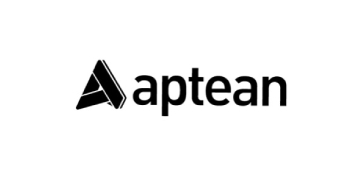
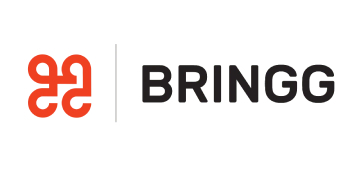
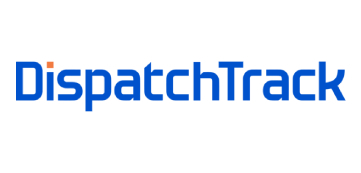
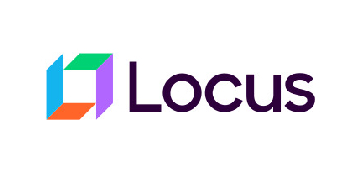
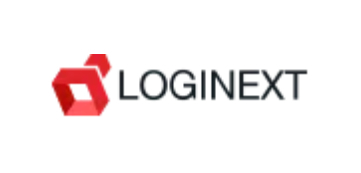

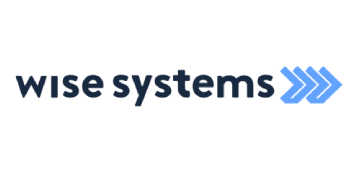
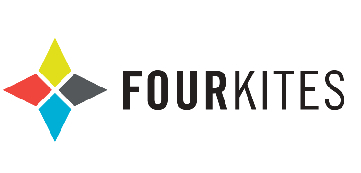
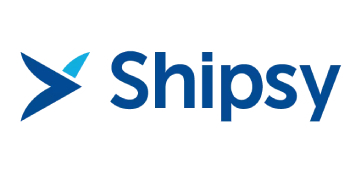

These platforms support scalable logistics execution, end-to-end visibility, and reliable warehouse-to-last-mile coordination, which helps operations teams improve accuracy, efficiency, and fulfillment performance.
How we chose the best 3PL software
We evaluated each 3PL software platform using criteria aligned with operational needs, logistics performance, and technology scalability. We reviewed functional depth in warehouse management, order processing, freight coordination, and real-time shipment tracking. We also assessed automation capability, integration support for carriers and e-commerce systems, and availability of secure cloud access for distributed operations.
We analyzed platform usability, deployment flexibility, reporting accuracy, and analytics that monitor logistics performance. We compared API readiness for system-to-system connectivity, and we reviewed stability, reliability, and scalability to support high-volume environments. Customer feedback, product maturity, and innovation pace also shaped scoring.
This structured process ensured transparent comparison across providers and helped identify platforms that deliver measurable improvements in speed, accuracy, and cost efficiency. The selected solutions support connected supply chain workflows, reduce manual work, and provide real-time visibility across the entire fulfillment cycle.
Top 11 third-party logistics (3PL) software
1. FarEye
FarEye is a cloud-based 3PL software platform that helps businesses manage end-to-end delivery operations with predictive visibility, automated decisioning, and real-time logistics intelligence. It supports warehouse, middle-mile, and last-mile execution through a unified delivery-orchestration layer.

- The platform provides AI-powered route optimization that improves fleet efficiency and reduces transportation cost across multi-modal distribution networks.
- It offers real-time delivery visibility with predictive ETAs that help logistics teams prevent delays before they occur.
- Its low-code workflow engine enables rapid process configuration without relying on custom development or long deployment cycles.
Pros:
- FarEye excels in reducing transportation costs by optimizing routes for multi-modal distribution networks.
- The platform offers predictive delivery visibility, helping logistics teams proactively prevent delays.
- FarEye allows for rapid process configuration, making it easier to implement without long deployment cycles.
Cons:
- While ideal for high-volume environments, its feature-rich platform can be overwhelming for smaller logistics operations with less complexity.
FarEye suits enterprises managing complex, high-volume logistics environments.
2. Aptean
Aptean provides 3PL software built for distribution-focused businesses that need strong warehouse management and precise inventory control. It improves operational accuracy across receiving, storage, picking, and packing by centralizing warehouse execution processes in one system. The platform supports scalable logistics operations and ensures fulfillment consistency across multi-site distribution environments.

- It offers built-in warehouse management tools that automate receiving, put-away, picking, and shipping to improve throughput.
- It provides license-plate and barcode-based tracking that reduces packing errors and increases inventory accuracy.
- It includes transportation and freight-billing management to consolidate delivery costs and simplify invoicing workflows.
Pros:
- Aptean provides excellent tools for automating receiving, put-away, and picking processes, which increase operational efficiency.
- Aptean simplifies freight billing and invoicing, making it ideal for companies with complex delivery cost structures.
Cons:
- Aptean’s strong focus on warehouse management can limit its flexibility for companies needing a broader 3PL solution beyond the warehouse.
Aptean suits logistics providers that require strong warehouse execution and accurate inventory lifecycle control.
3. Bringg
Bringg offers 3PL software designed to improve last-mile delivery performance through centralized delivery management, real-time tracking, and connected fleet coordination. It helps logistics teams optimize delivery operations across owned fleets, 3PL partners, and crowdsourced carriers while improving delivery reliability and customer experience at scale.

- It provides access to an extensive delivery-network marketplace that enables rapid carrier sourcing and flexible capacity for peak-volume fulfillment.
- It offers automated delivery scheduling that aligns planned routes with demand patterns and service-level expectations.
- It delivers real-time delivery tracking with proactive status notifications that improve transparency for shippers and customers.
Pros:
- Bringg specializes in multi-carrier last-mile delivery models, offering great flexibility in carrier sourcing and delivery scheduling.
- The platform enables businesses to access a large network of carriers, enhancing scalability during peak volumes.
Cons:
- While it’s strong in delivery execution, Bringg lacks the depth of predictive analytics offered by other platforms like FarEye.
Bringg suits logistics operations that manage multi-carrier last-mile delivery models.
4. DispatchTrack
DispatchTrack provides 3PL software built to improve last-mile logistics performance through precise route planning, automated delivery scheduling, and real-time service visibility. It helps logistics teams increase delivery accuracy, reduce transportation cost, and improve overall fulfillment predictability across high-volume distribution environments.

- It delivers predictive delivery-time calculations that improve on-time performance and strengthen customer-experience outcomes.
- It offers automated appointment scheduling with capacity-based time slots to optimize delivery windows and resource usage.
- It provides live delivery-status tracking with proactive exception management to reduce failed or missed deliveries.
Pros:
- DispatchTrack ensures accurate delivery windows and improves customer satisfaction by providing precise delivery timing.
- It optimizes delivery scheduling by using capacity-based time slots, which enhances resource usage and efficiency.
Cons:
- It’s less effective for businesses seeking end-to-end visibility, as it lacks deep integration with warehouse systems.
DispatchTrack suits organizations that prioritize dependable last-mile delivery execution.
5. Locus
Locus provides AI-driven 3PL software that improves route planning accuracy, fleet utilization, and supply chain efficiency for distribution-intensive logistics operations. It enables logistics teams to automate complex delivery planning and optimize transportation decisions using predictive intelligence and real-time operational insights.

- It uses machine-learning route optimization that reduces mileage, fuel cost, and route-planning time across multi-stop delivery networks.
- It provides territory and load planning that balances fleet capacity to improve delivery throughput.
- It offers a real-time logistics control tower that monitors delivery performance and identifies operational bottlenecks.
Pros:
- Locus uses machine learning to create optimal routes, reducing fuel costs and improving fleet utilization.
- The platform provides a central dashboard for tracking delivery performance and identifying bottlenecks in real time.
Cons:
- While Locus excels in planning and route optimization, it may fall short for businesses needing more robust warehouse management features.
Locus suits logistics teams managing large-scale distribution networks.
6. LogiNext
LogiNext provides cloud-based 3PL software that automates transportation planning, delivery scheduling, and real-time fleet tracking for logistics and distribution networks. It enables operations teams to optimize delivery routes, improve fulfillment speed, and centralize visibility across carriers, vehicles, and service zones for higher logistics efficiency.

- It automates delivery-route planning using predictive algorithms that reduce transit time and fuel expense.
- It offers real-time fleet visibility with heatmaps and performance dashboards for proactive delivery control.
- It supports multi-carrier coordination and electronic proof-of-delivery to streamline end-to-end execution.
Pros:
- LogiNext’s algorithm-based route planning helps reduce transit time and fuel expenses.
- The platform offers real-time monitoring of fleet performance with heatmaps and dashboards, helping to improve operational control.
Cons:
- LogiNext may struggle in unique logistics environments where highly customized workflows are needed.
LogiNext suits distribution-heavy operations with high delivery-volume demands.
7. Onfleet
Onfleet provides last-mile focused 3PL software that helps logistics teams manage delivery operations with real-time tracking, efficient route execution, and integrated proof-of-delivery tools. It supports high-volume delivery environments and improves fulfillment accuracy through intuitive fleet coordination and driver communication.

- It enables real-time driver tracking and delivery visibility through a live map interface that improves operational control.
- It offers automated SMS notifications and customer communication tools that reduce support workload and improve delivery transparency.
- It provides route optimization and driver task assignment to increase delivery speed and reduce operating cost.
Pros:
- Onfleet’s live map interface for driver tracking increases operational transparency and delivery control.
- Reduces support workload and enhances the customer experience by providing proactive updates.
Cons:
- While strong in last-mile delivery, Onfleet’s capabilities outside this focus area are somewhat limited, particularly for large-scale warehouse or freight operations.
Content for option 2
Onfleet suits businesses with time-sensitive last-mile delivery needs.
8. Wise Systems
Wise Systems provides autonomous dispatch and routing technology within its 3PL software platform, designed to streamline fleet operations through continuous optimization and real-time performance adjustments. It uses machine learning to improve delivery precision over time based on real-world driver behavior and historical performance patterns.

- It enables autonomous dispatching that assigns and reorders deliveries dynamically based on changing conditions and service priorities.
- It uses continuous optimization to adjust routes in real time and maintain delivery accuracy.
- It includes driver feedback loops that improve route performance through real-world behavioral insights.
Pros:
- Wise Systems offers dynamic dispatching that adjusts in real time based on changing conditions and priorities.
- The platform’s real-time optimization ensures deliveries are always performed as efficiently as possible.
Cons:
- Some logistics teams may face challenges adopting the platform’s automated capabilities if they have limited automation experience.
Wise Systems suits logistics teams seeking automated planning with minimal manual intervention.
9. FourKites
FourKites provides real-time supply chain visibility and predictive intelligence within its 3PL software platform, enabling logistics teams to track multimodal freight movements across road, ocean, air, and rail. It improves shipment transparency, strengthens planning accuracy, and reduces dwell times by predicting delays before they occur.

- It provides predictive exception management that identifies potential disruptions and recommends proactive actions to protect delivery timelines.
- It offers real-time tracking across carriers and transport modes through a unified visibility dashboard.
- It uses data-driven insights to improve on-time delivery rates and optimize logistics performance.
Pros:
- FourKites provides end-to-end tracking across multiple transport modes, including road, ocean, air, and rail.
- The platform identifies potential delays and recommends actions to mitigate disruptions.
Cons:
- FourKites’ integration with existing systems can be complex and time-consuming, especially for smaller organizations.
FourKites suits organizations that manage complex, multi-modal freight networks.
10. Shipsy
Shipsy provides 3PL software that consolidates transportation management, cross-border logistics, and multimodal freight coordination into a single platform. It improves delivery efficiency and cost control through integrated carrier management and real-time visibility across shipments, partners, and geographies.

- It automates cross-border logistics processes with duty, compliance, and documentation workflows that reduce customs delays.
- It enables end-to-end freight visibility with real-time shipment updates across international routes.
- It supports carrier rate benchmarking and contract management to optimize freight spending.
Pros:
- Shipsy excels in simplifying cross-border operations, reducing customs delays, and improving international shipment visibility.
- Offers comprehensive tracking across global routes to maintain visibility of shipments across borders.
Cons:
- Shipsy is better suited for businesses with a strong emphasis on freight management, but may not be the best choice for comprehensive warehouse control.
Shipsy suits businesses operating global logistics networks.
11. Routific
Routific provides route-optimization focused 3PL software designed to help delivery teams increase route efficiency, improve delivery accuracy, and reduce fleet operating costs. It uses optimization algorithms to generate efficient delivery sequences that shorten drive time and improve fuel utilization across distribution routes.

- It creates optimized delivery routes based on distance, traffic patterns, and fleet constraints to reduce operating cost.
- It enables real-time delivery updates and route adjustments when conditions change.
- It improves resource planning through driver workload balancing and route time forecasting.
Routific suits small and mid-sized delivery operations that prioritize routing precision.
Each of these 3PL software solutions offers distinct strengths, and the right choice depends on operational scale, integration needs, and delivery complexity.
Key capabilities of 3PL software
- Automates fulfillment workflows to improve processing speed and reduce operational effort.
- Provides real-time shipment visibility across fleets, carriers, and delivery locations.
- Integrates logistics systems to support connected, scalable supply chain operations.
Pros:
- Routific specializes in optimizing routes, cutting down on operating costs, and improving fuel efficiency.
- Ideal for smaller logistics teams looking for a precise and cost-effective routing solution.
Cons:
- While great for smaller operations, Routific may lack the scalability and feature depth required by larger, high-volume logistics operations.
3PL software helps logistics providers manage complex distribution environments with accuracy, transparency, and reliable delivery performance.
The Bottom Line on Third Party Logistics (3PL) Software
3PL software plays a critical role in modern logistics by enabling organizations to manage warehouse operations, transportation planning, and delivery execution through one connected platform. It supports accurate, reliable, and scalable fulfillment by combining automation, real-time visibility, and data-driven decision-making. As supply chain complexity grows, the right 3PL software helps businesses operate with clarity, efficiency, and predictable performance across every stage of distribution.
Choosing a solution should depend on operational scale, integration needs, delivery timelines, and customer experience goals. Evaluating platform capabilities, analytics depth, and scalability helps identify the best fit for long-term logistics success.
FAQs
1. What is the difference between 3PL software and WMS?
3PL software manages end-to-end logistics operations including order fulfillment, transportation planning, carrier coordination, and real-time shipment visibility. A WMS focuses primarily on warehouse processes such as receiving, storage, picking, and packing. 3PL software connects warehouse, transportation, and delivery operations, while WMS manages storage and movement inside the warehouse.
2. What features should 3PL software have?
3PL software should include order-management tools, real-time shipment tracking, carrier integration, automated routing and scheduling, proof-of-delivery, analytics, and system connectivity with ERP, WMS, TMS, and OMS platforms. Strong visibility, automation, and scalability are essential to support accurate and efficient logistics operations.
3. What industries use 3PL software?
Industries such as e-commerce, retail, manufacturing, consumer goods, healthcare distribution, food and beverage, and industrial supply rely on 3PL software to manage transportation and fulfillment operations. Any business that handles large-scale distribution or multi-location delivery networks benefits from real-time visibility and automated logistics coordination.
4. What are the common characteristics of 3PL software?
3PL software enables real-time visibility, automated logistics workflows, and centralized control of order, inventory, and transportation processes. It integrates supply chain systems, supports scalable fulfillment, and provides analytics that improve delivery accuracy, resource planning, and operational efficiency across warehouse, middle-mile, and last-mile environments.
5. What are the common challenges solved by 3PL software?
3PL software solves challenges such as delayed deliveries, inaccurate inventory, manual planning errors, limited visibility, high transportation cost, and inefficient carrier coordination. It automates execution, improves tracking accuracy, and enables proactive exception management so logistics teams can maintain service reliability and scale operations confidently.
6. How to choose the right 3PL software?
Select 3PL software by evaluating logistics requirements, integration needs, shipment volume, delivery complexity, and expected scalability. Compare automation capability, analytics depth, carrier connectivity, user experience, and deployment flexibility. Request product demonstrations to review real-world workflows and ensure alignment with operational objectives and industry use cases.
7. What is the pricing of 3PL software?
Pricing for 3PL software varies by feature scope, shipment volume, number of users, integration complexity, and deployment model. Most providers offer subscription-based pricing with modular add-ons. Pricing typically scales with usage and service requirements. Request custom quotes based on operational size and logistics needs.
